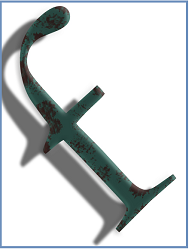LETRAMENTO CRÍTICO E O ENSINO DE LÍNGUA PORTUGUESA: ANÁLISE DE UM LIVRO DIDÁTICO
DOI:
https://doi.org/10.22481/folio.v12i1.5768Palabras clave:
Ensino Crítico de Língua Inglesa, Letramento Crítico, Pedagogia FreirianaResumen
O presente artigo tem como objetivo apresentar os resultados da análise de um livro didático de língua portuguesa realizada à luz das contribuições teóricas dos estudos do Letramento Crítico, decorrentes da Pedagogia Freireana. O livro analisado é o Português Linguagens 9º ano de William Cereja e Thereza Cochar. Interessou-nos avaliar se as unidades temáticas são construídas a partir de uma abordagem crítica, se contemplam gêneros textuais que refletem as práticas de letramento contemporâneas e se as atividades de leitura propostas são condizentes com a realidade social do seu público-alvo. Os resultados dessa investigação qualitativa de análise documental demonstraram que o livro didático em questão possui potencialidades de colaboração para a formação de um leitor crítico e socialmente engajado.
Descargas
Citas
2. BALTAR, Marcos; BEZERRA, Charlene. Paulo Freire e os Estudos Críticos do Letramento: O Sulear e a Relação Norte-Sul. Revista Línguas & Letras, Unioeste, v. 15, n. 28, p. 142-159, jan./jul. 2014.
3. FREIRE, Paulo. Pedagogia do oprimido. 50. ed. rev. e atual. Rio de Janeiro: Paz e Terra, 1987.
4. FREIRE, Paulo. A Importância do Ato de Ler: em três artigos que se completam. 23. ed., São Paulo: Autores Associados: Cortez, 1989.
5. FREIRE, Paulo. Pedagogia da autonomia: saberes necessários à prática educativa. 2. imp., 43. ed., Rio de Janeiro: Paz e Terra, 1996.
6. FREIRE, Paulo. Papel da educação na humanização, 1997. Disponível em: http://acervo.paulofreire.org/xmlui/search?fq=location.coll%3A6. Acesso em: abr. 2013.
7. GERALDI, João Wanderley. O texto na sala de aula. Paraná: Assoeste, 1984.
8. KLEIMAN, Ângela. Preciso “ensinar” o letramento? Não basta ensinar a ler e a escrever? Brasil: Ministério da Educação, 2005.
9. KLEIMAN, Ângela. Os Estudos de Letramento e a Formação do professor de língua Materna. Linguagem em (Dis)curso – LemD, v. 8, n. 3, p. 487-517, set./dez. 2008.
10. JORDÃO, Clarissa; FOGAÇA, Francisco Carlos. Ensino de Inglês, Letramento Crítico e Cidadania: um triângulo amoroso bem-sucedido. Línguas e Letras: estudos linguísticos, v. 8, n. 14, p. 79-105, jan./jun. 2007.
11. MONTE MOR, Walkyria Maria. Investigating Critical Literacy at the University in Brazil. Critical literacy: theories and practices, v. 1, n.1, p. 41-51, jul. 2007.
12. MONTE MOR, Walkyria Maria. Convergência e Diversidade no Ensino de Línguas: Expandindo visões sobre a “diferença”. Polifonia, v. 21, n. 29, p. 234-253, jan./jul. 2014.
13. RAJAGOPALAN, Kanavillil. Por uma linguística crítica. Linguagem, Identidade e a Questão Ética. São Paulo: Parábola Editorial, 2003.
14. ROJO, Roxane. Letramentos múltiplos, escola e inclusão social. São Paulo: Parábola, 2009.
15. ROJO, Roxane. Letramentos escolares: coletânea de textos nos livros didáticos de Língua Portuguesa. Perspectiva. Florianópolis, v. 28, n. 2, jul/dez. 2010. Disponível em: <http://educa.fcc.org.br/pdf/rp/v28n02/v28n02a07.pdf>.
Descargas
Publicado
Cómo citar
Número
Sección
Licencia






